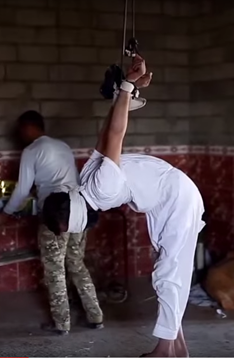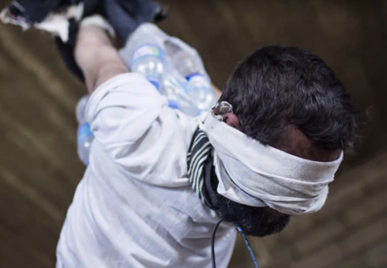Press Release: Disturbing footages show the crimes and abuses committed by the Iraqi Emergency Response Division against innocent civilians
On 30 May 2017, Geneva International Centre for Justice addressed a letter to the High Commissioner of Human Rights providing further evidence of the brutal implications of the war on terror and on the violations committed by the Iraqi security forces while fighting ISIS and “liberating” besieged cities.
The information contained in the letter referred to the videos recorded by Ali Arkady, an Iraqi photojournalist, who was embedded with the Iraqi Emergency Response Division (ERD) for months. This branch of the Iraqi army is leading the fight against ISIS and the liberation campaigns of besieged cities such as Mosul and Fallujah from the presence of the Islamic State. As the fight against terrorism is a common goal of the international community, the ERD and its allies have always received the endorsement and the support of international coalitions.
Mr. Arkady’s original goal was to do a story on how Shia and Sunni soldiers work together in order to defeat ISIS. Yet, after few weeks, the photojournalist began to realise that the reality on the ground was very different from the images portrayed by the Iraqi government and its allies. The shocking images captured by the journalist were published with a detailed report by Der Spiegel on 21 May 2017 and the videos – as well as an interview with the author – were later broadcasted by ABC news.
The videos recorded by Mr. Arkady show the disturbing reality, and uncover the truth behind the ways in which the war on terror is conducted. The footages display the divisions led by Officer Omar Nazar and Officer Haider Ali breaking into houses and apartments of alleged ISIS fighters and supporters and committing indiscriminate violence and abuses, including torture, rape and extrajudicial killings.
The incriminating footages show the Iraqi soldiers beating and threatening innocent men, arbitrarily executing a handcuffed prisoner, using sadistic torture techniques – which often lead to death – tying men to the ceiling by the wrists, electrocuting prisoners and forcing the alleged ISIS fighters to repeat the pledge of loyalty to Abu Bakr Al Baghdadi, the self-proclaimed leader of the Islamic State. While such door-to-door operations are conducted to uncover ISIS affiliates, Mr. Arkady revealed that the soldiers knew that some of the men they were torturing had actually fled from ISIS and were innocent civilians.
|
|
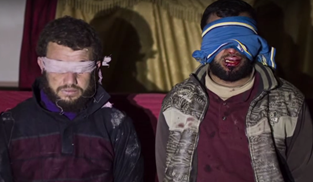 |
|
|
|
While these acts are clear and evident violations of several international human rights standard and humanitarian law, Officer Omar Nazar declared that, in his view, human rights do not apply to the people he suspects to be ISIS affiliated, and that he is proud of the work of his division.
Fearing for his life and for the safety of his family, Ali Arkady left Iraq and is now hiding.
The disturbing images and videos recorded by the photojournalist are a further confirmation of the brutality of the Iraqi army, which Geneva International Centre for Justice (GICJ) has been warning about since the beginning of the “liberation” campaign of Mosul as well as during previous military operations. In all its letters and appeals GICJ has documented that, under the pretext of fighting ISIS and uncovering all ISIS affiliates, the Iraqi army – supported by the pro-governmental militias and by international coalitions – is indiscriminately targeting civilian households and properties, and is committing brutal abuses, including torture, rape, summary execution, enforced disappearance and extrajudicial killings.
As such, GICJ has repeatedly called on the United Nations to conduct independent investigations on the crimes allegedly committed by the Iraqi security forces and to pressure the Iraqi government to hold the perpetrators accountable.
Despite the numerous appeals, the crimes committed by the Iraqi army have not ceased and thousands of civilians have suffered the same fate of the people in the videos of Ali Arkady. According to GICJ sources, soldiers are responsible for torture, enforced disappearance, summary executions, rape, severe beating and destruction of civilian households and properties. At the same time, the suffering of civilians is further exacerbated by the actions of terrorist groups and of the pro-governmental militias, whose brutality is widely known and documented.
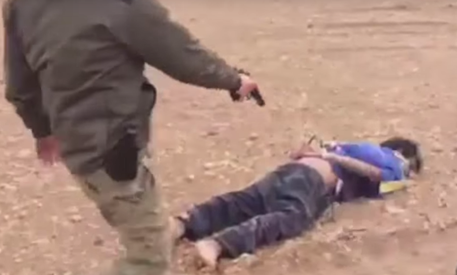
Unfortunately, the cases reported by Mr. Arkady are not isolated incidents, but are part of a common trend of behaviour of several units within the Iraqi forces, and have been committed even during previous military operations. While fighting ISIS and the spread of violent terrorism must be a priority, GICJ believes that the Iraqi army should prioritise the security and the safety of the civilian population, without adding to the plight of those who were forced to flee from terrorist threats.
It is unfortunately that the international community has turned a blind eye on the crimes committed in Iraq by the governmental forces. Yet, now that the faces and the names of the perpetrators have been revealed, the Iraqi authorities and the entire world cannot continue to deny the truth. As the Iraqi government has often promised to conduct investigations and to ensure reparation to the victims but always failed to do so, the responsibility of ensuring justice and redress lies in the hands of the international community.
Therefore, GICJ reiterated its call for independent and impartial investigations to shed light on the implications and the modalities of the war on terror, and urged the High Commissioner and the United Nations to pressure the Iraqi government and its allies to prioritise the security and safety of civilians and civilian properties while countering terrorism and, therefore, immediately halt indiscriminate bombing and shelling on civilian-inhabited areas. Finally, GICJ willed the High Commissioner to pressure the Iraqi government to provide adequate redress and reparation to all victims for the abuses endured at the hands of the Iraqi security forces.
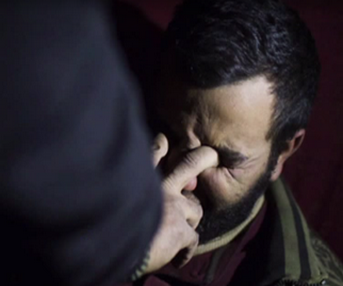 |
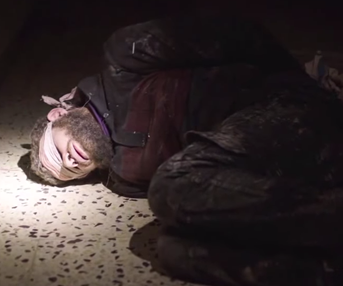 |
النص بالعربية: هنا
Links to GICJ articles on Mosul:




